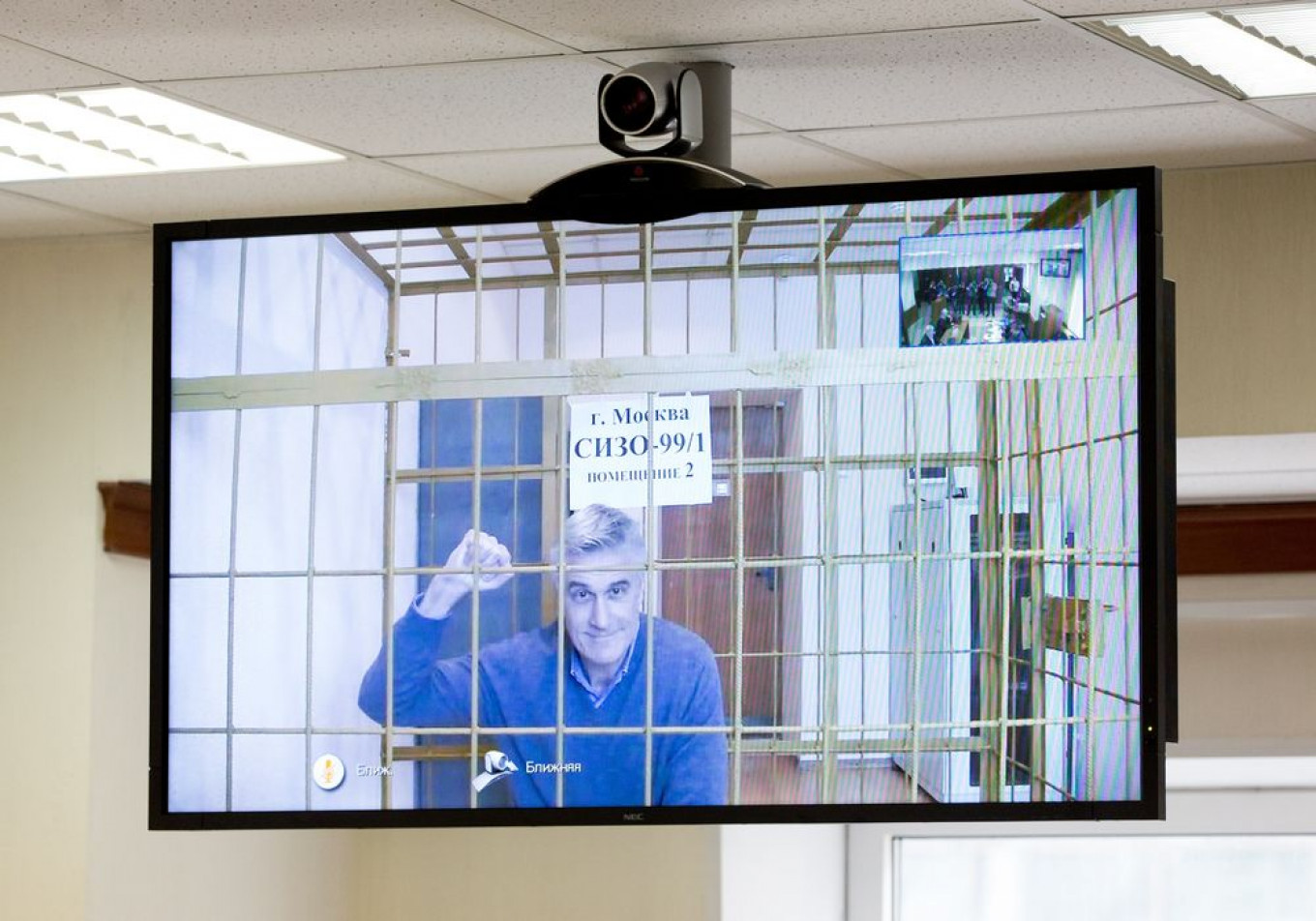
The good news for Russian President Vladimir Putin is that his premier investment event won’t be dominated this year by discussions about sanctions. The bad news is that attention will be fixed instead on the arrest of American private equity manager Michael Calvey.
Calvey, who remained a Russia advocate even after sanctions caused foreign investment to shrivel since 2014, was detained on suspicion of fraud earlier this year in what he describes as a commercial dispute. Now he may get a chance to tell his side of the story after the Kremlin said it wants to see him at the St. Petersburg International Economic Forum despite being held under house arrest.
“This is a no-win situation for the Kremlin,” said Chris Weafer, a senior partner at Macro Advisory Ltd. in Moscow. “To have Calvey show his face and say he is still committed to Russia is all well and good, but he’ll be saying it while under guard and with the other Baring guys still in jail. It puts the whole issue of his arrest front and center.”
Like sanctions and Crimea in previous years, the distraction only highlights that Russia is failing to attract foreign money. Foreign direct investment as a percentage of gross domestic product is the lowest of any developing nation, according to a May report from the Institute of International Finance, and an attempted pivot to Asia has failed to make up for plunging interest from the West.
The result is a program heavy on regional managers at an event that once sought to rival the World Economic Forum. The lackluster attendance is most visible among American companies. Coca-Cola Co., Air Products & Chemicals Inc. and Weatherford International Plc. are among only a handful of U.S. firms with chief executives listed on panels. Ambassador Jon Huntsman is boycotting the event because of Calvey’s arrest.
If Calvey is allowed to attend, it is unclear on what terms. He’s required to wear an electronic tracking bracelet, and people under house arrest in Russia are generally required to be escorted by two prison guards when not at home.
One bright spot for the Kremlin is the 1,000-strong Chinese delegation, led by President Xi Jinping, a sign of the growing alliance between Moscow and Beijing. On the other hand, two of Russia’s closest allies, Kazakhstan and Belarus, are only sending deputy prime ministers. Xi will share the stage during a plenary with Putin and the leaders of Bulgaria, Armenia and Slovakia, as well as United Nations Secretary-General Antonio Guterres.
As well as being overwhelmingly Russian, the conference is typically dominated by all-male panels, an issue that IMF chief Christine Lagarde alluded to in her speech on the plenary panel with Putin last year. This year, a panel session at the forum’s sister event, the International Youth Forum, is already raising eyebrows for its title: “Not for the Ladies? How to Combine Business, Family, and Beauty.”
Russia is badly in need of foreign investment to stimulate stagnating growth and reverse a drop in incomes since the annexation of Crimea. A $400 billion state-led investment program is unlikely to achieve Putin’s ambition to double growth by 2024, according to most economists and his own government.
Calvey aside, the fading sanctions risk does seem to be creating a slightly better backdrop for the event. State-backed organizer Roscongress says the forum has never been bigger, with over 12,000 participants already confirmed. The heads of the EU’s biggest energy companies, including BP Plc’s Robert Dudley, Total SA’s Patrick Pouyanne, and Royal Dutch Shell Plc’s Ben van Beurden are making their annual trip to the forum, joined by Societe Generale SA chief Frederic Oudea.
“I have the impression that interest in the forum is quite high this year,” Frank Schauff, the head of the Association of European Businesses, said. “The circumstances surrounding Russia are quite complex in regards to international business, but it will provide a good opportunity for foreign companies to take the temperature.”
Two panel sessions are scheduled to be attended by Artem Avetisyan, the businessman who is locked in a legal dispute with Calvey. Avetisyan denies Calvey’s accusation that the criminal case and shareholder conflict are related.
“There are certain concerns about the situation for foreign investors. The forum is a good venue to discuss these, including the treatment of Michael and Baring Vostok,” Alexis Rodzianko, who runs the American Chamber of Commerce in Moscow, said. “I expect questions about this may be addressed on the main stage with the main guy.”
